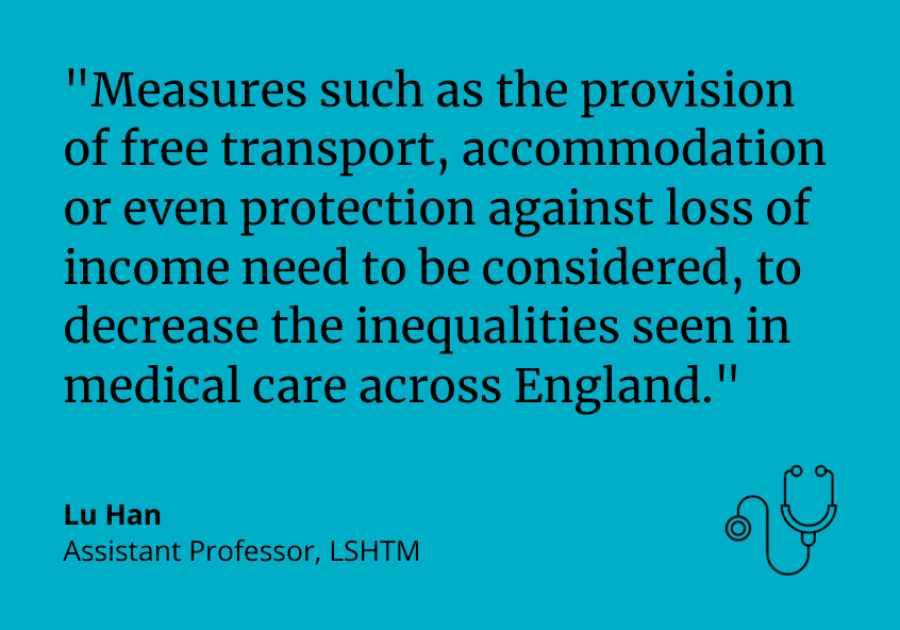Almost one third of breast cancer patients look for NHS treatment further afield
11 January 2024 London School of Hygiene & Tropical Medicine London School of Hygiene & Tropical Medicine https://lshtm.ac.uk/themes/custom/lshtm/images/lshtm-logo-black.png
When offered a choice of where to receive surgical treatment, almost one third of breast cancer patients receiving treatment through England’s National Health Service (NHS) choose to bypass their nearest centre, according to new research.
An analysis of available NHS data, led by researchers at the London School of Hygiene & Tropical Medicine (LSHTM), showed that 22,622 of 69,153 patients undergoing breast-conserving surgery (32.7%) and 7,179 of 23,536 patients undergoing mastectomy (30.5%) bypassed their nearest hospital to receive surgery further away from home.
The findings, published in CANCER, suggest that women living with breast cancer who are younger, without additional medical conditions and of white ethnicity, are more likely to elect to travel further.
Patients were also more likely to choose treatment at hospitals classified as specialist breast reconstruction centers, even if they were not undergoing the additional treatment personally, and were more likely to avoid hospitals with shorter surgical waiting times. The perception of a surgeon’s reputation through the media also played a part in decision-making.
The authors believe that while all patients, irrespective of their age, ethnicity and socioeconomic status, should be able to make choices regarding their care, the current policy may be further driving inequalities in access to quality care and outcomes across England.
Dr Lu Han, Assistant Professor at LSHTM and co-author, said:
“As marginalized groups already face barriers to high-quality care, it’s important for policy makers to consider measures that mitigate against the risks of increasing inequalities in access and outcomes.
“Measures such as the provision of free transport, accommodation or even protection against loss of income need to be considered, to decrease the inequalities seen in medical care across England.
“Moreover, patients prefer to access information on the quality of breast cancer care of the hospitals in their region at the start of the management pathway when a diagnosis is sought. Such information should be easy to understand and presented in a format that can support the trade-offs that patients have to make.”
Dr Ajay Aggarwal, Professor at LSHTM and co-author, said:
“The policy messages presented in our paper have been developed by patient co-authors. These offer pragmatic solutions to support patients during their cancer journey, so that they can get reliable and evidence-based information to make important choices about their care. It also warns policy makers that choice policies can create inefficiencies in the system without providing relevant information on provider quality.
“More effort needs to be made to provide publicly-available information on hospital quality that looks at outcomes that matter to patients.”
Publication
Ajay Aggarwal, Lu Han, Daniel Lewis, Jeanette Costigan, Alison Hubbard, Joanne Taylor, Anne Rigg, Arnie Purushotham and Jan van der Meulen. Association of travel time, patient characteristics, and hospital quality with patient mobility for breast cancer surgery: A national population-based study. CANCER. doi.org/10.1002/cncr.35153
LSHTM's short courses provide opportunities to study specialised topics across a broad range of public and global health fields. From AMR to vaccines, travel medicine to clinical trials, and modelling to malaria, refresh your skills and join one of our short courses today.